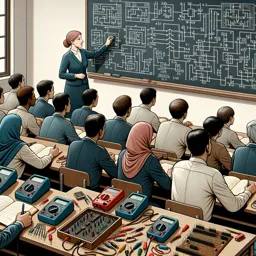Introduction
Advanced electronics are rapidly revolutionizing the electrical industry, equipping electricians with innovative tools, smarter systems, and greater diagnostic capabilities. Professionals who stay updated with these advancements not only enhance their core skills, but also open doors to exciting new career opportunities. In this article, we will uncover some of the latest breakthroughs in the field and explain how they can be applied practically by electricians.
Smart Devices and IoT Integration
The rise of the Internet of Things (IoT) has brought about a new era in building automation and management. Electricians are increasingly tasked with installing and maintaining smart devices — such as connected lighting, HVAC systems, and advanced security systems. Understanding how to configure, troubleshoot, and secure these IoT-enabled systems is becoming a vital skill in the electrician’s toolkit.
Power Electronics and Energy Efficiency
Modern power electronics, such as variable frequency drives and solid-state relays, offer significant improvements in energy efficiency and performance. Electricians who are proficient in installing and programming these devices can help clients achieve substantial energy savings and integrate renewable energy sources more effectively.
Programmable Logic Controllers (PLCs) and Automation
PLCs are at the heart of industrial automation. Mastery of PLC programming and troubleshooting allows electricians to work on highly automated production lines and process controls. Industries rely heavily on electricians with this knowledge to ensure continuity and precision in manufacturing operations.
Diagnostic Tools: From Multimeters to Thermal Cameras
Diagnostic technology is evolving. Beyond traditional multimeters, electricians now use thermal imaging cameras, oscilloscopes, power quality analyzers, and network testers. These advanced diagnostic instruments significantly reduce downtime, enhance safety, and improve troubleshooting precision.
Staying Ahead: Training and Certification
As technology advances, ongoing education is essential. Professional courses in advanced electronics provide electricians with up-to-date knowledge on system integration, repair methodologies, and the latest safety protocols. Acquiring certifications in specialized areas boosts employability and positions electricians as industry leaders.
Conclusion
Embracing advanced electronics empowers electricians to solve complex challenges, work more efficiently, and seize emerging opportunities in a dynamic industry. Continuous learning and hands-on experience with new technologies are the keys to a successful and future-proof electrical career.































